Arctic Liquid Freezer II 240 ARGB Review
Introduction
Arctics Liquid Freezer II is one of the most known and best AIO series out there. The 240mm form factor is also the most used and requested. Therefore, the LFII 240 might be the most important version out of Arctics LFII lineup. Lets take a closer look and see if its just as good as the other ones.
Positive
- Best-in-Class 240mm Performance
- Great RGB
- 1+1 Cable for PWM & RGB
Neutral
- VRM Fan
Negative
- 38mm thickness might be hard to fit in
- VRM Fan makes high-pitch noise (Quality control)
What's in the Box?

Just like every other Liquid Freezer II, the 280 version in ARGB and non-RGB comes in an all-Arctic fashion. Inside the Triangular shaped box, we will find the following items:
- AMD Mounting Hardware
- Intel Mounting Hardware
- Thermal Paste
- Pre-assembled AIO
A subtle change to the original Liquid Freezer is the switch to the newer Arctic MX-5 thermal paste. Even if we haven't/cadon't test the differences produced by this switch ourselves, many other reviews point to an up to .5°C difference. Therefore we would assume that this aspect should be considered an upgrade.

The side of the box contains the usual spec sheet, which we summarized down below:
| Name | Arctic Liquid Freezer II 240 ARGB |
| Dimensions (Radiator) |
277x120x38mm |
| Fan Airflow | 48.8 CFM |
| Fan Noise | 0.3 Sonne (should be >25db) |
| Fan Air Pressure | 1.85mm H2O |
| Fan Speed | 1800RPM |
| Fan Connection | PWM |
| Pump Connection | PWM (shared with Fan) |
| RGB | 3-Pin Addressable |
Compatibility
One thing that has not changed at all is the compatibility list and the Installation procedure. Down below be attached a full compatibility list:
| Intel | AMD |
| LGA 1700 | AM5 |
| LGA 1200 | AM4 |
| LGA 2066* | |
| LGA 2011-3* | |
| LGA 1155 | |
| LGA 1151 | |
|
LGA 1150 |
Please note that the Sockets marked with an * need to be accompanied by a Square ILM (Independent Loading Mechanism). This means that the holes around the socket that are meant to keep the cooler in place need to be placed in a square formation.
Individual Components
Waterblock / Pump
Similarly to every other Arctic Liquid Freezer II in existence, the LFII 240 ARGB comes with the same iconic Waterblock/Pump combo with an additional VRM fan.

This VRM Fan is supposed to keep the VRMs around the CPU cooler by spinning at max. 3000RPM. The speed of this fan is controlled by the same 1- PWM cable which is also responsible for the fans on the radiator itself.

As a reminder, we've tested this VRM fan in our Liquid Freezer ii 120 reviews.
Using our Ryzen 3700x at 4.5Ghz and 1.4vcore, we found that this little fan was able to keep the VRMs around the CPU 5°C colder.
Even though this is definitely a change, we also have to note that no matter how hard we pushed the limit, with or without the fans, the temps were still far away from being dangerous.
Radiator

Although the LFII 240 comes with "just" a 240 mm-sized radiator, the thickness is still an Arctic-unique thing. At 38mm, or 63mm if the fan is taken into account, Arctic AIOs are significantly thicker than most models out there.
For every other LFII, it seems like it's this thickness that gave Arctic the performance benefit allowing them to lead every Benchmark chart.
Although the Fan area of the radiator keeps its 2x120 space, the bottom and top portion of the rad got some additional borders to them. One side for the tubes and the other one probably to re-route the water in the other direction.
Tubes

The 450mm long tubes used in the Liquid Freezer II 420 ARGB are both impressive and slightly underwhelming at the same time.
Sure the tubes are among the thickest we have ever seen (12.4mm) though this seems to be an optical gimmick as the actual inner diameter (where the water flows) is just 6mm thick. Making the amount of water that can flow through these tubes no different than what we are used to.
Fans

The pre-installed fans on top of an LFII 240 are Arctic's own in-house made 120mm P12 PWM ARGB. Pushing around 48.8 CFM @ 1.85 mm/h20 while spinning at 1800RPM.
In addition to the light show, they are able to produce, they already proved to us in the other LF II reviews that they are very much capable of delivering great performance at low noise.
Appearance
The post noticeable aspect of a Liquid Freezer AIO would be the Waterblock/Pump combo. Using the same Millenium Falcon-inspired design as any other LFII, it looks "special" to say the least. In addition to that, the little fan which is blowing additional Air onto the VRM heatsink is also nothing commonly seen for this type of cooler.
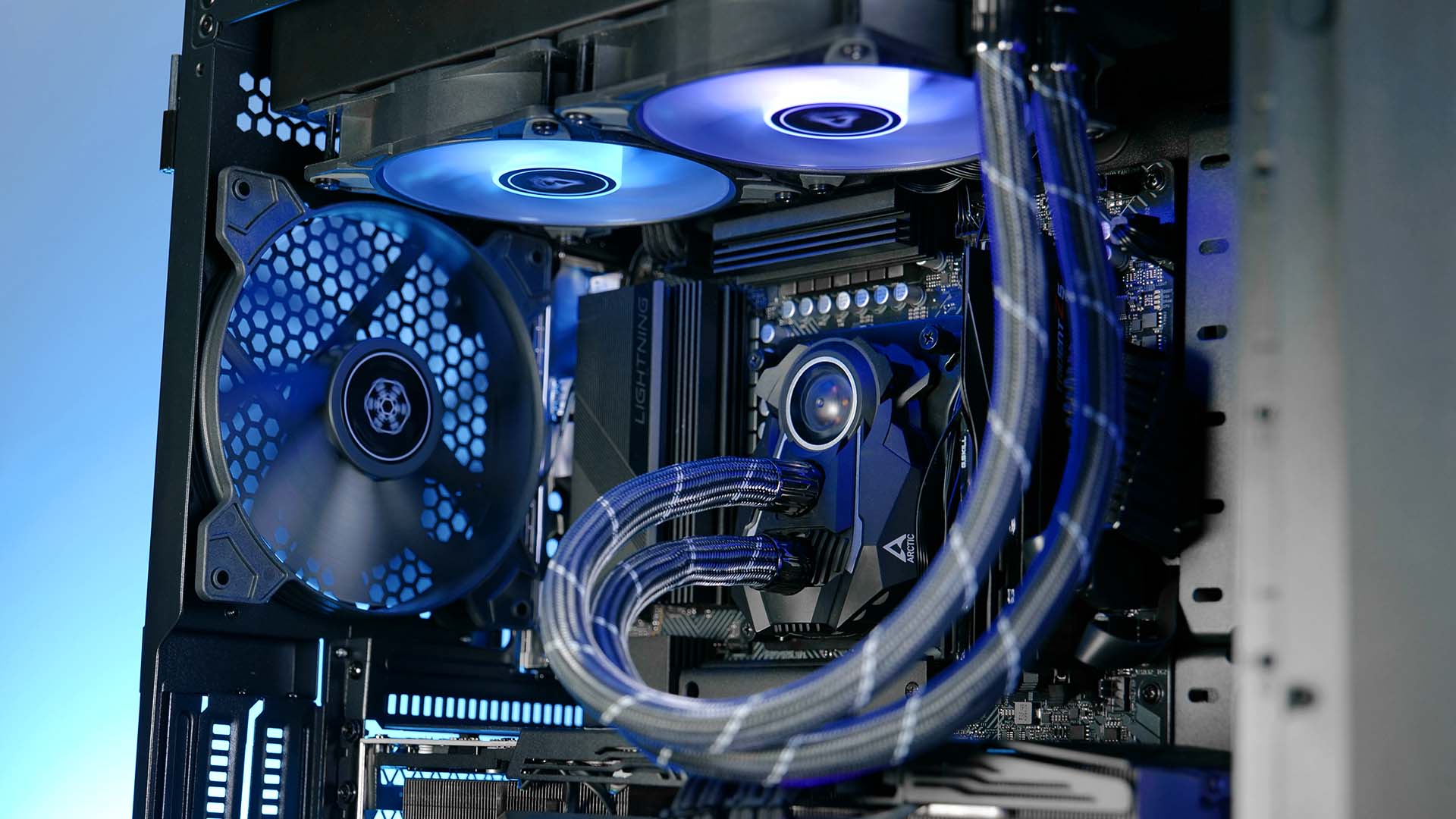
If this is something that suites your theme, you will have to decide for yourself. However, considering the thickness of the tubes and radiator, we can in the very least guarantee that the cooler as a whole looks impressive.
Benchmark
We benchmarked the Arctic Liquid Freezer II 240 ARGB using our regular 3900x testbench.

Whilst letting the cooler's fan and Pump run at max speed, the LFII 240 ARGB managed to keep the CPU at 46.1°C above ambient. This positions it .4°C in front of its non-RGB counterpart.
However, the most impressive aspect is compared to other 240mm coolers.
Thanks to its incredibly thick radiator, the LFII 240 managed to outperform not only every other 240mm rad, but simultaneously some of our 360mm contestants. Truly impressive.

On the Noise-to-Performance side, we ran into a problem.
Although the LFII 240 ARGB has arguably the best noise-to-performance curve compared to any other 240mm AIO, as soon as the fan's spin slower than 40% of their max speed, we can see an unnatural halt in it's noise level.
As it turned out, the VRM fan of our LFII 240 unit creates a slightly high-pitched noise, significantly louder than any of our other LFII AIOs.
This high-pitched noise is unfortunately what lead to the LFII 240 not being able to lower its noise level to the same degree as every other Liquid Freezer. Therefore, once this level is reached, other Coolers, Air or Water, are starting to catch up and then overtake Arctic's 240mm AIO.
Conclusion
Although we are huge fans of Arctic's Liquid Freezer II Lineup, it is the very first time we ran into Quality Control issues firsthand.

As explained within the benchmark section of this review, the VRM fan of our LFII 240 unit makes significantly louder noise compared to any other LFII Series AIO. This unfortunately leads to a massive fall in its Noise-to-Performance ratio making it an average cooler below 50% fan speed.
Although the max-performance of the 240mm version is still impressive, to say the least, it is very unfortunate that a little fan was able to bend the curve to such a detrimental degree.

That being said, we would also like to remind you that using the little VRM fan is not a necessity. Not only does it's cooling effect on the VRMs have minimal effect at best, but you can also -not- use it. By removing the little cable found right next to the Waterblock's base, we can just disconnect the fan and use the AIO as if it did not have that fan. Doing this, in our specific case, would greatly improve its Noise-to-Performance ratio making it again one of the very best 240mm AIOs on the market.
Therefore, although we can say that the Arctic Liquid Freezer II 240mm ARGB/non-RGB is one of the best 240mm AIOs out there and that we can clearly recommend it for Mid- to High-tier CPUs, we would recommend an additional check. If your specific model has that high-pitched noise, and it is something uncomfortable to you, make sure to disconnect it. The cooling effect is "noticeable" at best, and having a quiet build was probably the reason you wanted to go with a cooler of this thickness anyway.

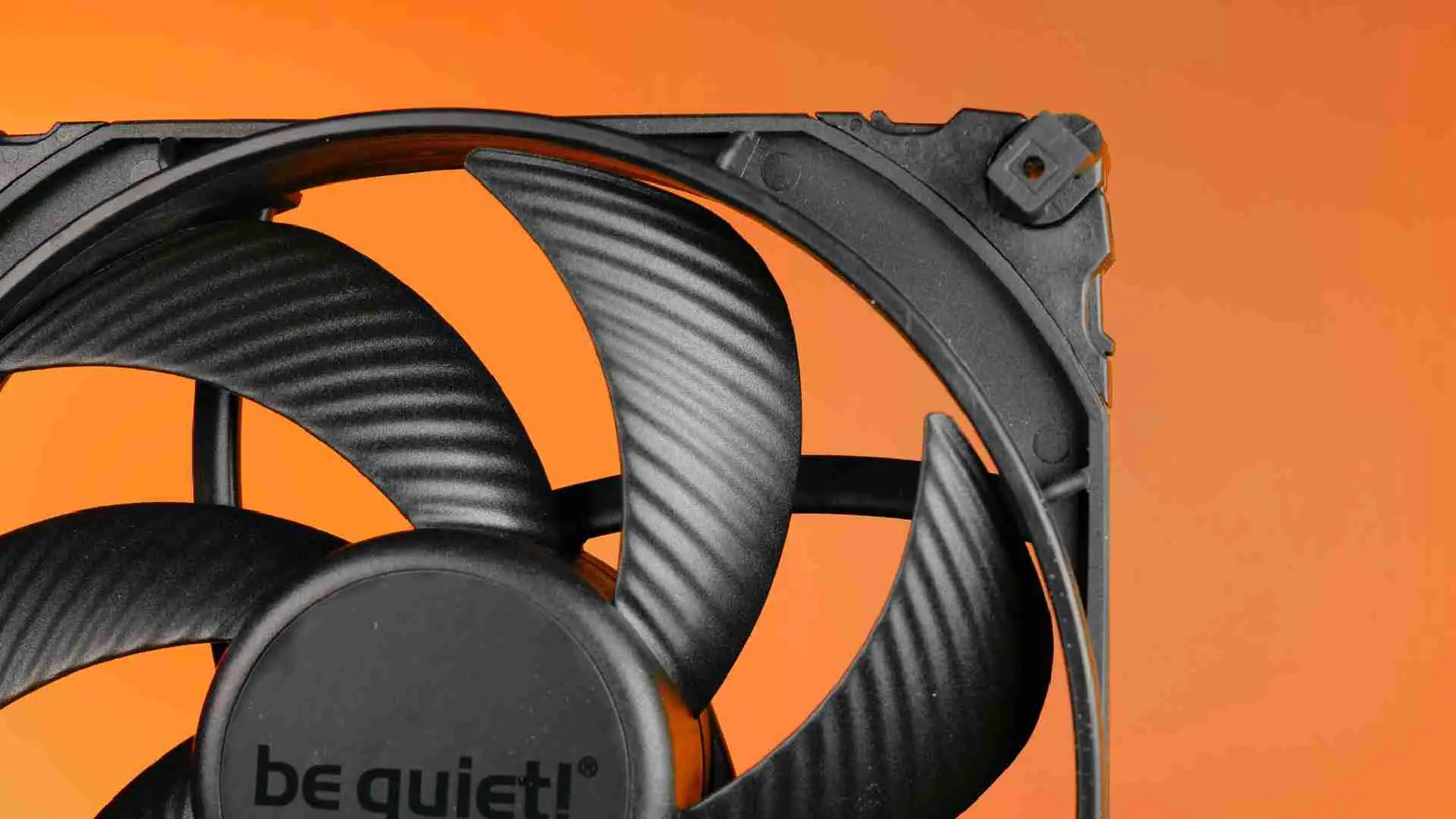
be quiet! Silent Wings 140 PWM Review
While the Silent Wings 140mm High-Speed was a best of a Case fan, we are going to take a closer look at its slower spinning P
Read More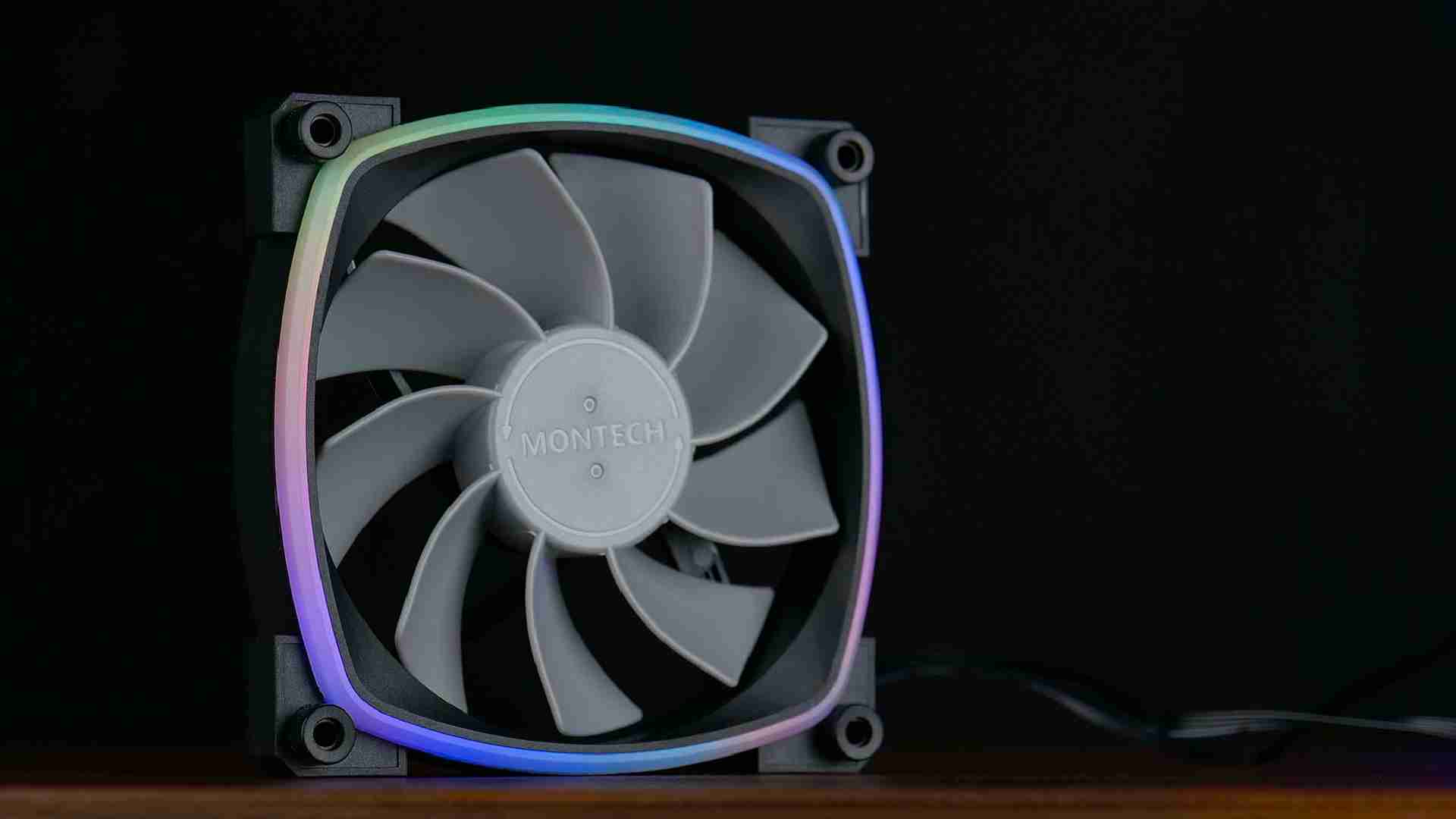
Montech RX120
Montechs new 120mm case fan line has one special twist to it. Next to the regular AX120 Fan, the RX120 is a reverse spinning
Read More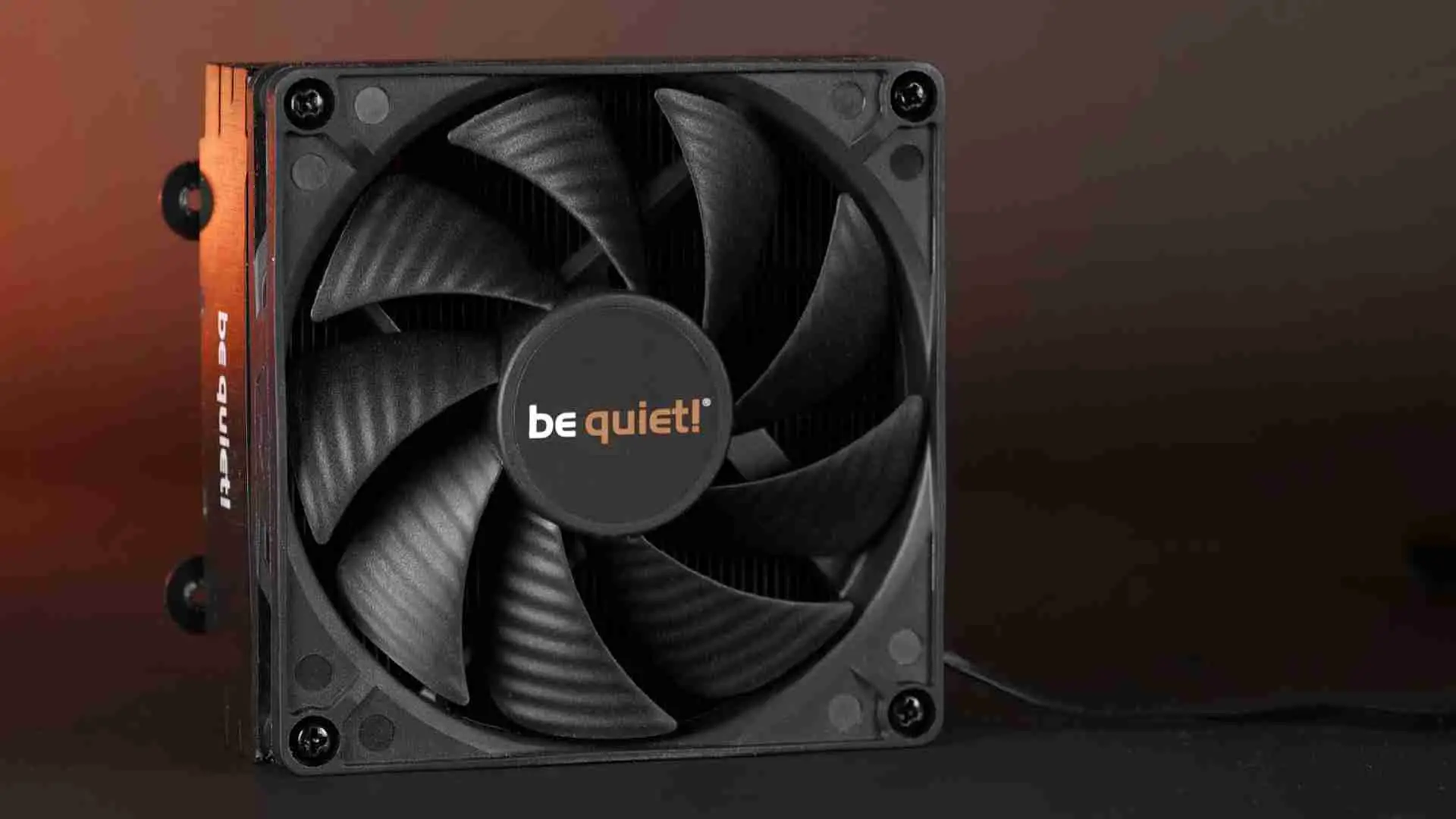
be quiet! Pure Rock LP
The ultra small SFF CPU cooler market is really hard. Not only do you have very limited space to work with, but condensing al
Read More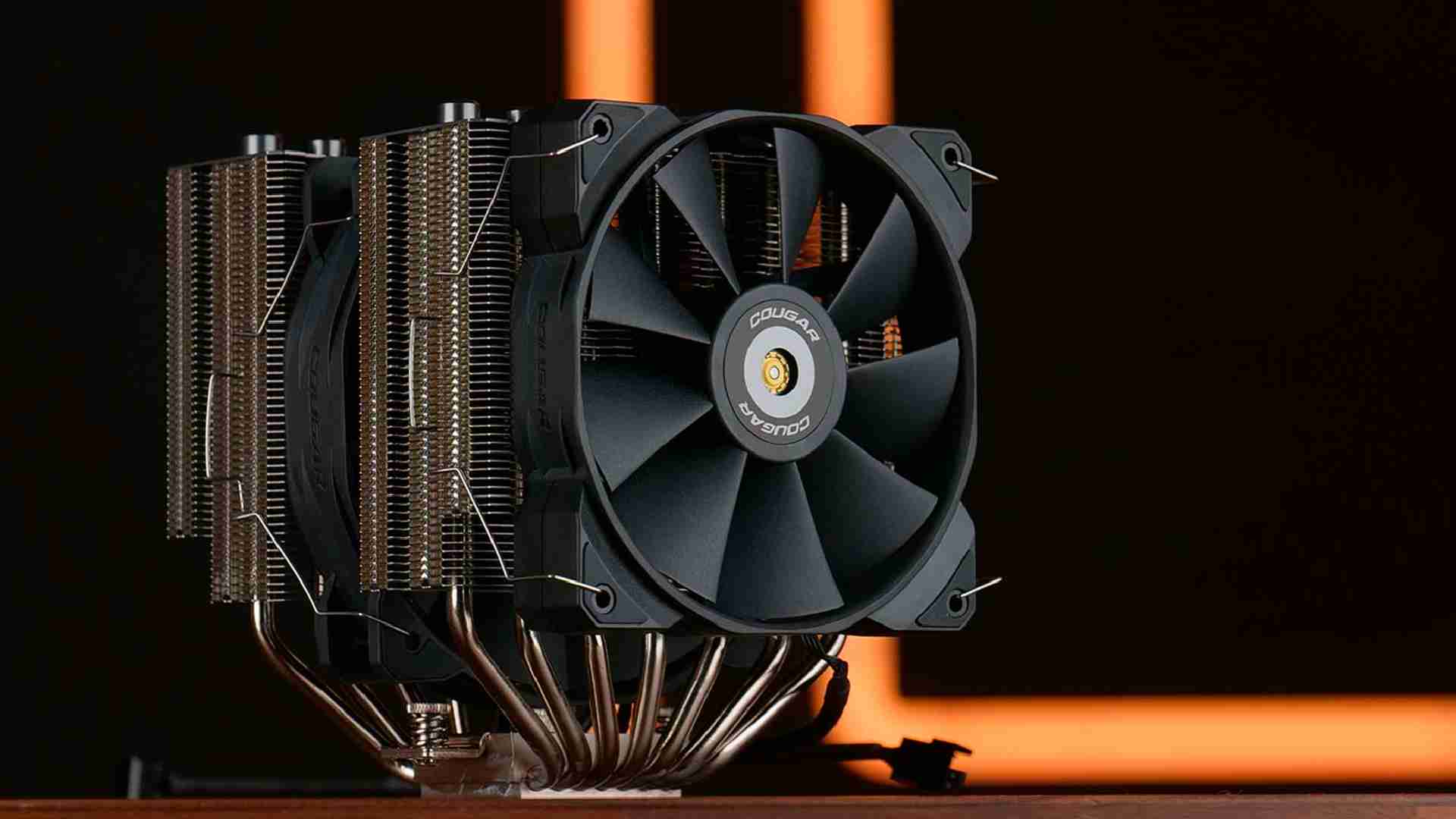
Cougar Forza 135
Featuring 7 heat pipes and fans strong enough to grind a piece of wood into pieces makes the Cougar Forza 135 the next contes
Read More